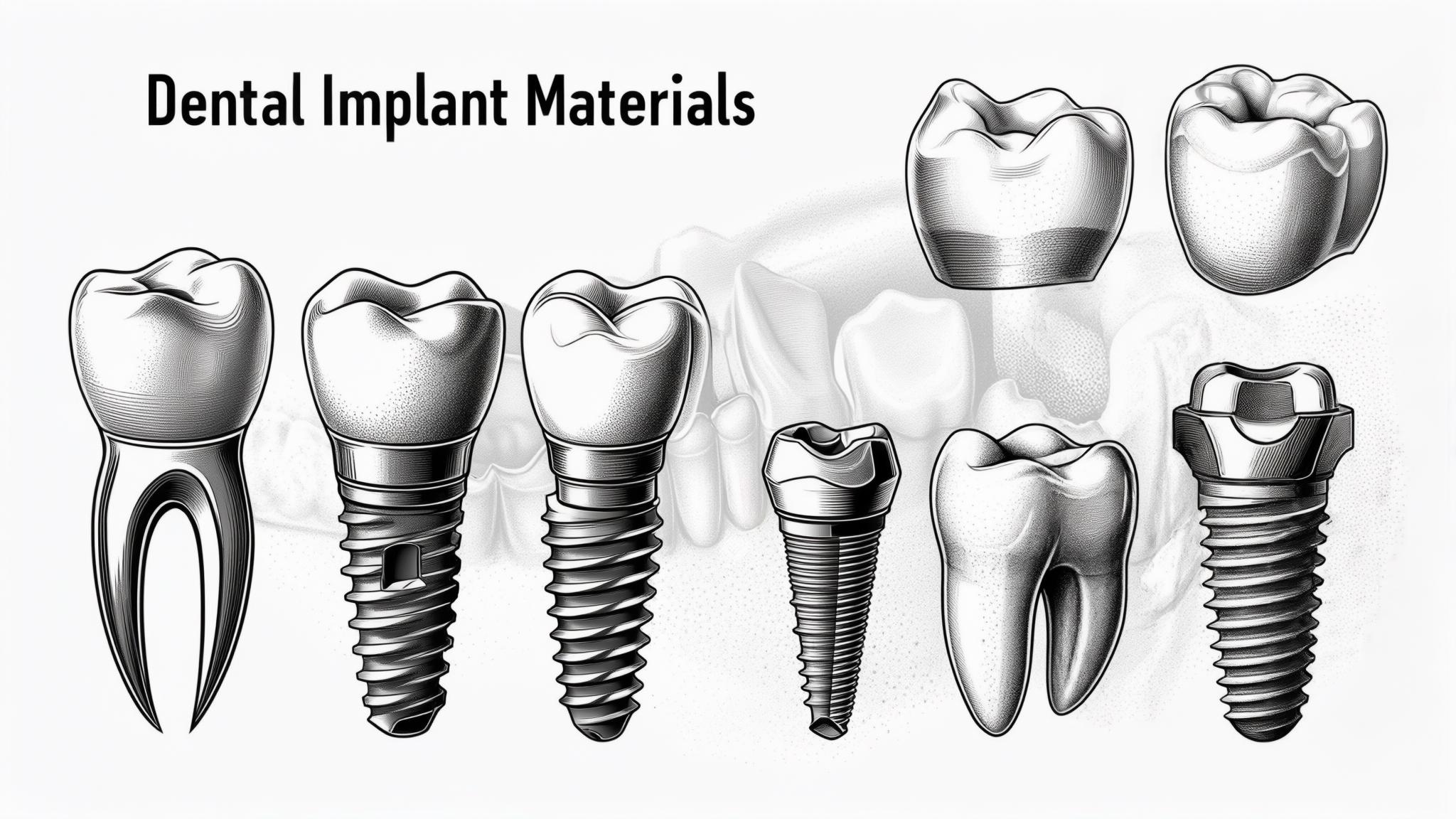Understanding Dental Implants
Dental implants are a revolutionary solution for replacing missing teeth. They act as artificial tooth roots, providing a strong foundation for fixed or removable replacement teeth that are made to match your natural teeth. The dental implant procedure involves placing a small post, usually made of a biocompatible material, into the jawbone. This post acts like a root, anchoring the replacement tooth securely in place.
The material used for dental implants is crucial because it must integrate well with the bone—a process known as osseointegration—and endure the forces of chewing. This makes biocompatibility and durability essential characteristics for any implant material.
Overview of Titanium Implants
Titanium has been the gold standard in dental implants for decades. It was first used in the 1960s, and its success has made it the most common material for implants today.
Properties of Titanium
- Biocompatibility: Titanium is highly biocompatible, meaning it is well-tolerated by the body and integrates effectively with bone.
- Strength and Durability: Titanium is known for its strength and ability to withstand the forces of biting and chewing.
- Corrosion Resistance: It resists corrosion from bodily fluids, making it ideal for long-term use in the body.
Titanium is not only used in dentistry but also in various medical fields, such as orthopedic surgery, due to these advantageous properties.
Overview of Zirconia Implants
Zirconia is a newer material in the field of dental implants, gaining popularity for its aesthetic benefits and strong performance.
Properties of Zirconia
- Biocompatibility: Like titanium, zirconia is biocompatible and integrates well with bone.
- Aesthetic Qualities: Zirconia is tooth-colored and translucent, offering superior aesthetics compared to the metallic appearance of titanium.
- Strength and Fracture Resistance: Zirconia is incredibly strong and resistant to fractures, making it a reliable choice for dental restorations.
The development of zirconia implants has provided an alternative for patients seeking a metal-free solution.
Comparison of Zirconia and Titanium Implants
Biocompatibility
Both titanium and zirconia are biocompatible, meaning they are unlikely to cause an immune response. They integrate well with bone, although titanium has a longer track record of success.
Aesthetic Considerations
Zirconia shines in the aesthetic department due to its natural tooth-like appearance, which can be a significant advantage for patients concerned about their smile's appearance. Titanium, although functional, may show through the gums as a dark line, especially if the gums recede.
Strength and Durability
Both materials are strong, but titanium is slightly more flexible, which can be advantageous under heavy biting forces. Zirconia is more rigid but offers excellent fracture resistance, making both materials highly durable.
Surgical Considerations
Titanium implants have been the subject of extensive research and have a well-documented success rate. Zirconia implants, while promising, are newer and may require more precise placement techniques due to their rigidity.
Cost and Accessibility
Generally, zirconia implants tend to be more expensive than titanium implants due to their aesthetic benefits and newer technology. However, both options are widely available, and prices can vary based on the provider and region.
Patient Considerations
When choosing between zirconia and titanium implants, several factors should be considered:
- Allergies or Sensitivities: Although rare, some patients may have sensitivities to metals, making zirconia a preferable choice.
- Aesthetic Preferences: Patients prioritizing a natural look may prefer zirconia.
- Personal Health: A thorough consultation with a dental professional can help determine the best material based on individual health needs and lifestyle.
Conclusion
Both zirconia and titanium implants offer unique benefits, and the choice largely depends on individual needs and preferences. Titanium remains the tried-and-true option with a long history of success, while zirconia provides an aesthetically pleasing alternative with promising results.
Ultimately, the best choice is one that aligns with your personal circumstances and is made in consultation with your dentist. They can provide guidance tailored to your specific needs, ensuring that your dental implant journey is a successful one.
References
For further reading, consider exploring scientific studies and articles on dental implants, including:
- "Osseointegration of Titanium Implants" by Buser et al.
- "Zirconia Implants: A New Alternative" by Kohal et al.
- "Aesthetic and Functional Outcomes of Zirconia vs. Titanium Implants" by Linkevicius et al.

